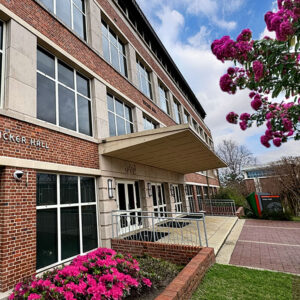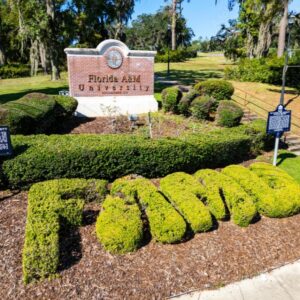Lifestyle | October 27th, 2020
Frenchtown, Food Deserts and Farmers
By: Aiyana Ishmael
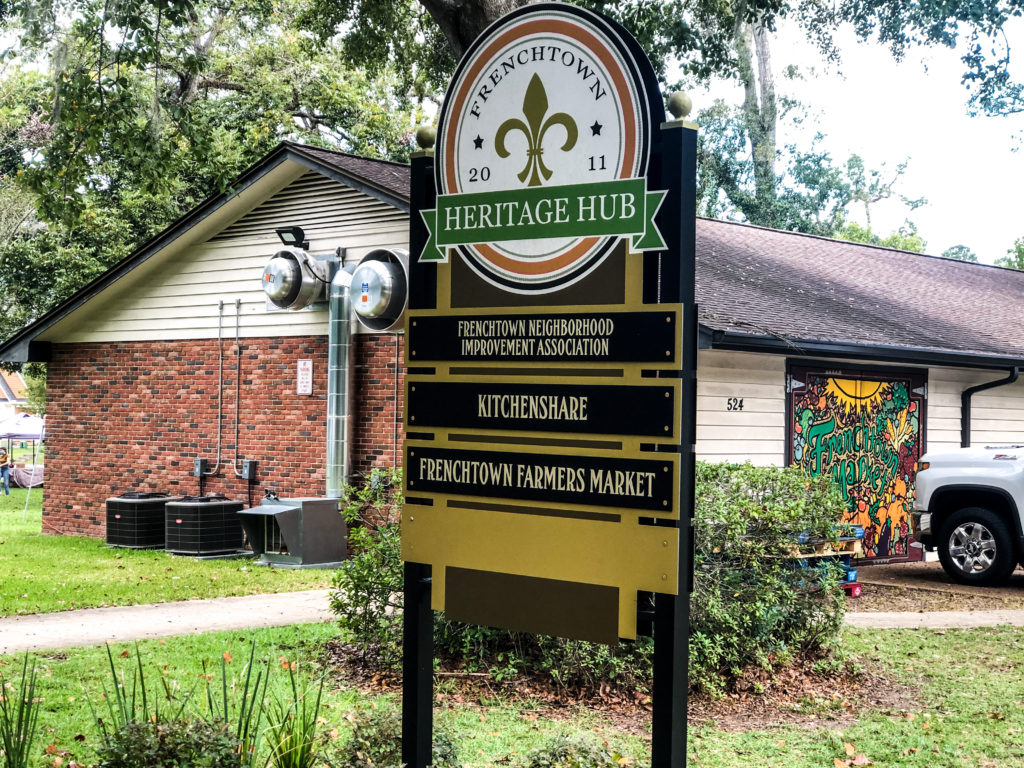
If you’re on the northside of Tallahassee, Fla. then you’re bound to see the New Orleans-esque painting on a fading wall reading “Frenchtown.” The primarily Black neighborhood’s history is felt upon crossing over Tennessee street.
In this community where access is the greatest need, Saturday mornings — for many residents— are reserved for the Frenchtown Farmers Market off of north Martin Luther King Jr Boulevard.
Strolling through the quaint backyard style market you’ll immediately be greeted by 83-year-old Ed Duffee Jr.
“What can I get you? How may I help you?” are the first phrases out his mouth.
If you’re unfamiliar with the Frenchtown area, you’ll soon learn everyone knows Mr. Duffee as the OF — original farmer.
Born and raised in Tallahassee, Fla., Mr. Duffee spent his early years growing up in Frenchtown.
Frenchtown is a community now battling to reclaim their neighborhood as a safe place to live. According to the U.S. Census, Tallahassee has a poverty rate of 26.7 percent. Despite the town’s origin a few hundred years ago, the now poverty-stricken area is almost seemingly unrecognizable.
Entering the snug market you’ll notice immediately a tent reading: “EBT and SNAP accepted here.” Electronic Benefits Transfer (EBT) and Supplemental Nutrition Assistance Program (SNAP) are available for use at Frenchtown Farmers Market.
Fresh Access Bucks began in 2013 with a Specialty Crop Block Grant awarded to Florida Organic Growers by the Florida Department of Agriculture and Consumer Services. With this program the market is able to double SNAP and EBT. This in return gives them extra money to go towards local produce.
There is a tedious process to apply for the program through the United States Department of Agriculture, but the Frenchtown team believes it’s “well worth it just to help people and have that resource be available,” Market Coordinator Rachel Conversi said.
Additionally, the market accepts Women, Infant and Children (WIC) EBT which is separate from SNAP and regular EBT. But, vendors have to register if they plan to take WIC.
Helping their community
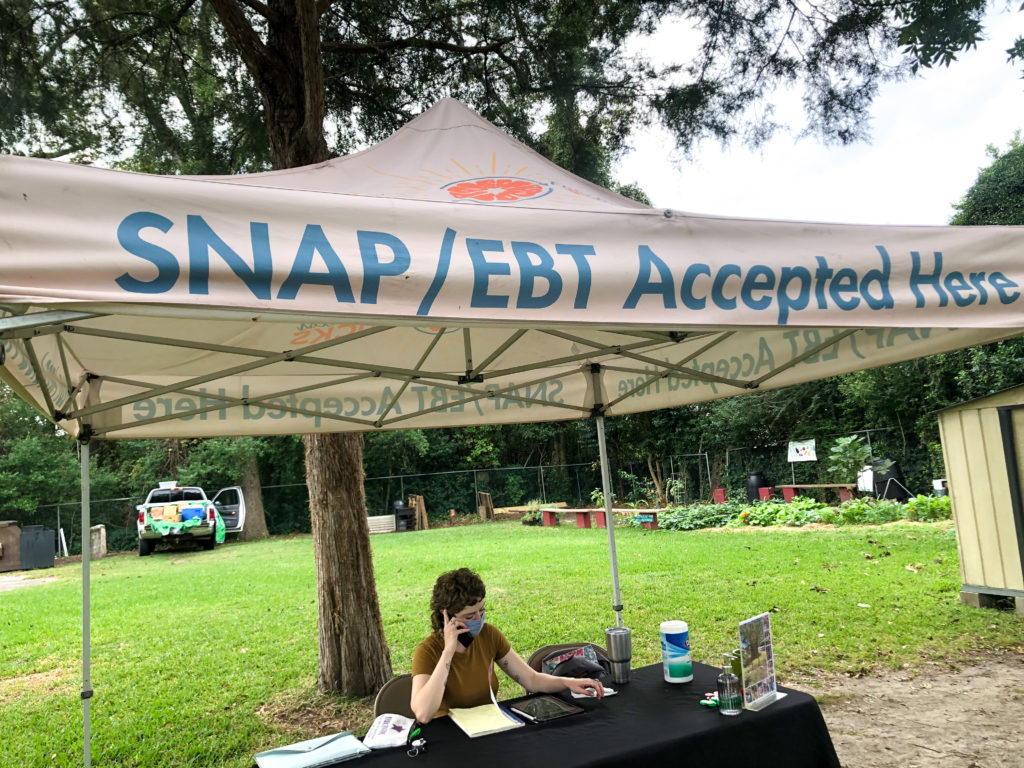 At the Frenchtown Farmers Market EBT and SNAP are accepted. Photo courtesy: Aiyana Ishmael.
At the Frenchtown Farmers Market EBT and SNAP are accepted. Photo courtesy: Aiyana Ishmael.
Duffee is one of the few farmers in Florida that accepts EBT, SNAP, WIC and Elders Affairs checks. Within the programs there is some overlap between customers that might have both, but they are all different government funded programs.
To continue to accept these government aids from customers Duffee has to annually take a course to make sure he’s up to date on the latest materials. On average Duffee says he takes about 80 SNAP, EBT or WIC orders on the weekend. Each coupon has to be stamped and signed by Duffee before the transaction can close.
“I do it to help people,” he said. “It gives them an opportunity, so I make certain that they can get access to fresh produce. It’s not a hassle but it does take a lot of time.”
Conversi estimates that almost half of the shoppers that attend the market weekly are EBT and SNAP customers.
“Frenchtown especially is a notorious food desert in the area,” Conversi said. “We have a huge lack of grocery stores, so to be able to have this right in the middle of the community is great. It’s walking distance for so many people around here who might not have reliable transportation.”
Recent graduate of Florida State University, Tristen Jahn, believes the market serves several purposes. Jahn came across the option of using EBT her first time visiting and now utilizes the program to help her financially.
“It’s really nice that they doubled the EBT because you can save money while also supporting local businesses,” Jahn said.
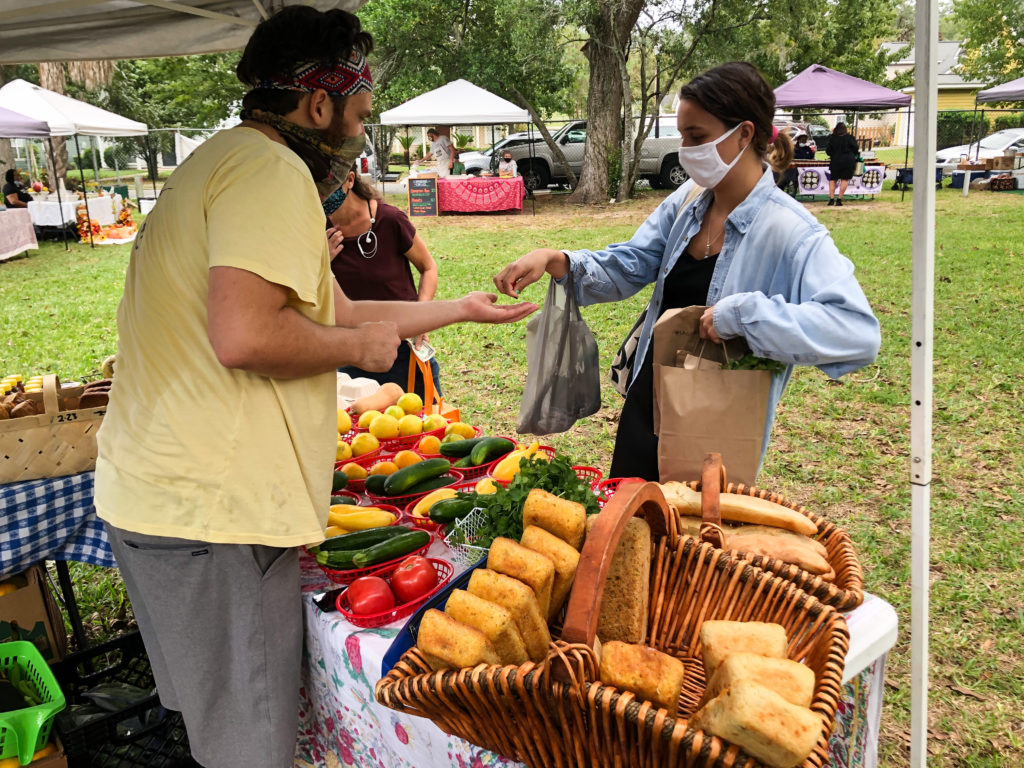 Jahn, 22, using the EBT coins to purchase food. Photo courtesy: Aiyana Ishmael
Jahn, 22, using the EBT coins to purchase food. Photo courtesy: Aiyana Ishmael
Kashauna Davis started attending the market just shy of a year ago. Now, she and her children are vendors selling homemade candles every Saturday. She credits Frenchtown’s efforts to provide food for the community where there is a lack thereof. Community food bins are placed around the neighborhood to assist those in need.
“If [my kids and I] have food we know we won’t get to then we have somewhere to take it to rather than throwing it away,” she said.
Moreover, the market gives Davis’ kids a first hand look on how much work goes towards the food they consume.
“They have a garden section at the farmers market where [my kids] come every other week and plant new stuff. People can come over and pick a couple items themselves as well. My kids are able to see the seed they plant actually sprout into food. It’s great that they’re learning ‘hey food doesn’t just come from the store.’ There’s things you have to do in order to get the food.”
Today, of the country’s 3.4 million total farmers, only 1.3% are Black, according to the US Department of Agriculture.
Duffee finds joy pouring into the community that continuously poured into him. Pre-coronavirus, Duffee would invite about 20 “youngsters” from Griffin Middle School — located three blocks from his garden — and teach them how to grow produce.
The beginning
Frenchtown began as a home to French settlers. Marquis De Lafayette, a wealthy French military officer and veteran of the American revolutionary war, decided to establish a town in which slavery was outlawed. This attracted many French and free Black settlers to the area after the Civil War.
According to the Devoe L. Moore Center, the 1920s into the early 1970s, despite sustained segregation and economic oppression under Jim Crow, pushed Frenchtown through a period of considerable economic growth.
Thereafter was a period of decline for Frenchtown, with increases in crime and the area around Alabama Street being designated a “Drug Corridor” by the U.S. Attorney’s Office.
Based on Tallahassee Police Department reports, violent crime incidents have increased by 64% in August 2020 when compared to August 2019. The predominantly Black community only a few streets over from the populated and majority-white Collegetown battles another large issue.
Today, Frenchtown faces a severe food desert. According to recent numbers released by the U.S Department of Agriculture, 13.8 percent of Florida residents are living with food insecurity due to living in food deserts — urban neighborhoods and rural towns without ready access to fresh, healthy and affordable food.
The farmers market is now a staple of the community, but it began with simple roots over a decade ago. Almost fourteen years ago, Jim Bellamy drove past a quaint garden on the corner of Alabama Street. That’s where Bellamy asked Duffee to sell produce at the farmers market he was creating.
Duffee for a while was the sole produce provider at the market in Frenchtown. Watermelon, mangoes, berries, and all types of greens are available for purchase.
Nearly two decades in the farming business, you’d never know his career wasn’t always based in agriculture. Duffee spent most of his early years in the army and then practiced law. It wasn’t until his uncle, George Holiday, passed away did Duffee take over the business.
“He would have come back from heaven and got me [if I didn’t],” Duffee said.
Just like Holiday, Duffee was raised in the capital city. The 83-year-old says “there is no one in Tallahassee that did not know [Holiday].”
The same could be said about Mr. Duffee.
“Turn on old Bainbridge road, take a left at Griffin Middle, go up three blocks and then you’ll see a cane field. Take a left and I’ll be there on the corner of Alabama and Birmingham street,” Duffee said.
Drive past and you’ll see a hidden garden where Duffee and his assistant Eric work during the day.
But, if it’s Wednesday and Saturday you’ll find him working at a farmer’s market — specifically in the predominantly Black communities of Tallahassee. Retirement for most means leisure days spent fishing, like Duffee describes, but that ultimately wasn’t enough for him.
Whether it’s the Bannerman, Frenchtown or Southside market, the one thing that remains the same is Mr. Duffee’s attendance.
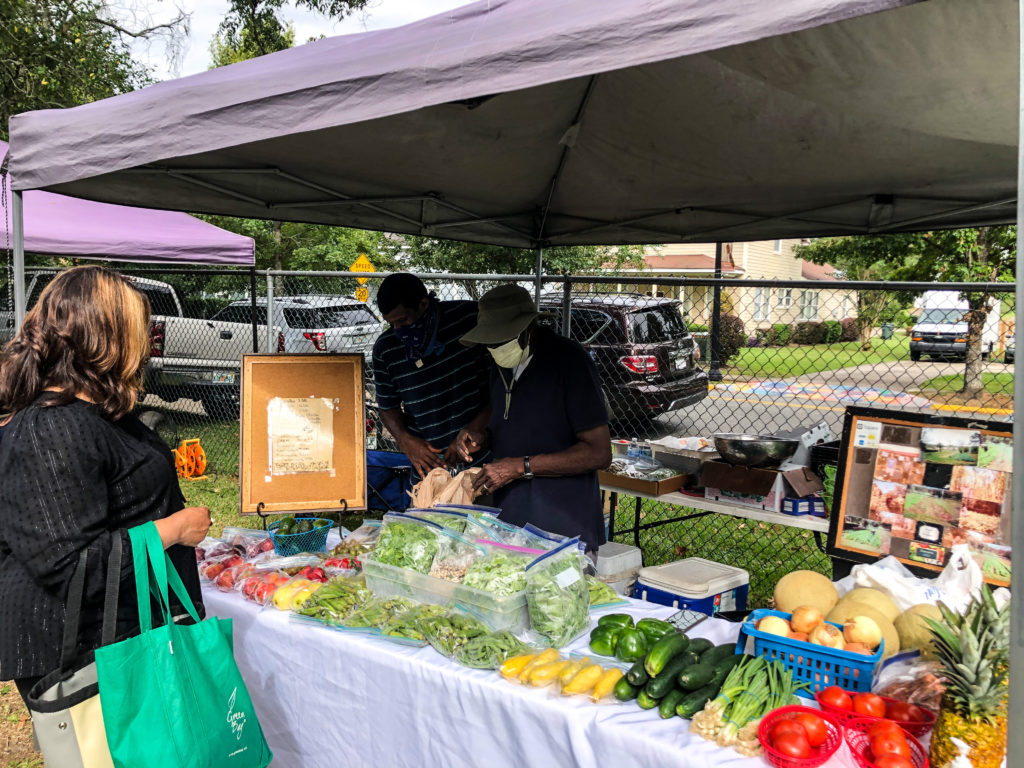 Duffee working the Frenchtown Farmers Market. Photo Courtesy: Aiyana Ishmael
Duffee working the Frenchtown Farmers Market. Photo Courtesy: Aiyana Ishmael
Changes amidst COVID-19
At the onset of the pandemic, enclosed grocery stores saw a lack of in-person shopping due to the severity of the virus. Because of this, open-air markets, like Frenchtown, saw a rise in visitors.
“We actually saw a pretty large increase,” Conversi said. “People felt safer shopping at an outside vendor than going to the grocery store. We also saw a bigger peak in interest in local fresh produce since people were more focused on their health.”
Duffee noticed an increase of shoppers throughout the pandemic as well. At 83 years old, the virus initially caused him to back away from farm work to limit his chance at exposure. In spite of that fear, he decided he’d rely on faith during these uncertain times. With farming still on his to-do list, Duffee takes all the necessary safety precautions so that he can continue attending weekly markets in the community.
“I determined that the good Lord will decide when, where and how I will go. If it’s [God’s] time to call me home then I’m ready,” Duffee said.
Now deep into the pandemic with Florida guidelines lifting, the Frenchtown market is seeing a rise in visitors.
Moving forward
The Frenchtown Farmers Market was recently approved for a $245,000 grant from the United States Department of Agriculture as a part of the Farmers Market Promotion Program. The program is meant to increase the accessibility and availability of produce that is sourced locally and regionally.
The grant will fund opportunities that include providing outreach, technical assistance to domestic farmers, agritourism activities and marketing opportunities.
The pandemic changed a lot for many people across the country.
“I tell people and I truly believe it, life will never be like it was before. It will always be different,” Duffee said.
Tallahassee is home to over 75,000 Black people. Food deserts encompass many of the predominantly Black neighborhoods. Access to fresh, healthy produce isn’t a luxury, rather a right the residents in Tallahassee should receive. Interesting enough, fresh markets are slowly closing the gap in a city filled with food insecurity.




